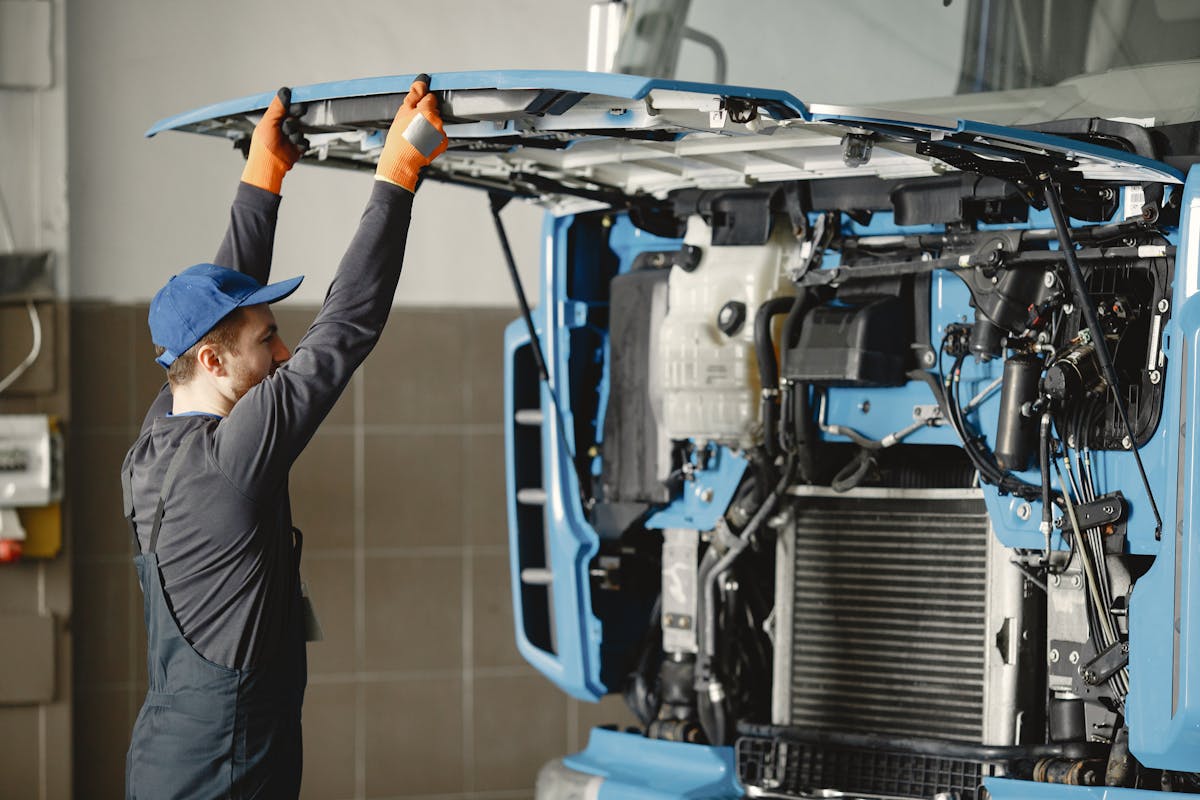Preventive Maintenance for Semi Trucks: Ensuring a Smooth and Safe Ride
Semi trucks are the workhorses of the transportation industry, covering vast distances and enduring demanding conditions every day. In order to keep these heavy-duty vehicles operating efficiently and safely, preventive maintenance is vital.

We'll discuss preventive maintenance in this article and offer insights into establishing a proactive maintenance schedule for semi trucks.
The Significance of Preventive Maintenance
Reliability Enhancement
Regular preventive maintenance identifies potential issues and addresses them before they become costly breakdowns.Staying ahead of problems can significantly enhance the reliability of your semi truck and reduce the risk of unexpected emergency roadside repairs.
Performance OptimizationWell-maintained semi trucks perform better on the road. Routine maintenance ensures optimal performance and fuel efficiency by checking crucial components such as the engine, transmission, brakes, and suspension.
Prioritizing safety
Safety is of utmost importance in the trucking industry. By performing routine maintenance, you can identify and correct safety-related issues, ensuring that your semi truck meets safety standards. Not only will this benefit the driver, but it will also promote road safety for everyone.
Components of Preventive Maintenance for Semi Trucks
Preventive maintenance consists of the following components:
Health of the engine:
Maintaining a healthy engine requires regular oil changes, air filter replacements, and coolant checks. Preventing wear and extending engine life can be achieved by addressing these aspects on schedule.
Inspections of brake systems:
Safety depends on the condition of your braking system. Regular inspections of brake pads, rotors, and fluid levels help prevent brake failures and contribute to overall road safety.
Maintenance of tires:
Checking tire pressure, rotating tires regularly, and inspecting for wear and tear are all part of proper tire maintenance. Having well-maintained tires improves fuel efficiency and reduces blowout risks.
Checking the transmission:
Smooth vehicle operation depends on the transmission. Preventing costly transmission repairs begins with regular checks on transmission fluid levels and condition.
Inspections of electrical systems:
A semi truck's electrical system plays a crucial role in its safety and functionality, from lights to battery checks. Electrical components should be checked regularly to prevent unexpected failures.
Establishing a Preventive Maintenance Routine:
Set up a schedule:
Prepare a comprehensive maintenance schedule based on the manufacturer's recommendations and your truck's specific needs. This includes routine inspections, fluid changes, and component replacements.
Keep Detailed Records:
Maintain an organized record of all preventive maintenance activities. The documentation provides valuable information about the truck's history, identifies patterns, and ensures compliance with industry regulations.
Make sure your team is trained:
Train drivers and maintenance staff on preventive maintenance. Maintain a proactive approach to reporting issues and conducting routine inspections before trips.
Preventive maintenance is an investment in your semi trucks' longevity, reliability, and safety. It's important to remember that preventive maintenance is more than just fixing what's broken - it's about preventing it from happening in the first place.
MPG Truck Solutions provides semi truck repair services in Los Angeles. Give us a call today at 424-342-4144 or schedule an appointment if you experience any issues with your semi truck.
mORE Articles
Contact Us
Have questions, or want to schedule your truck or trailer in for a service or repair? Get in touch, we're open Monday through Friday from 8:00am to 6:00pm.


